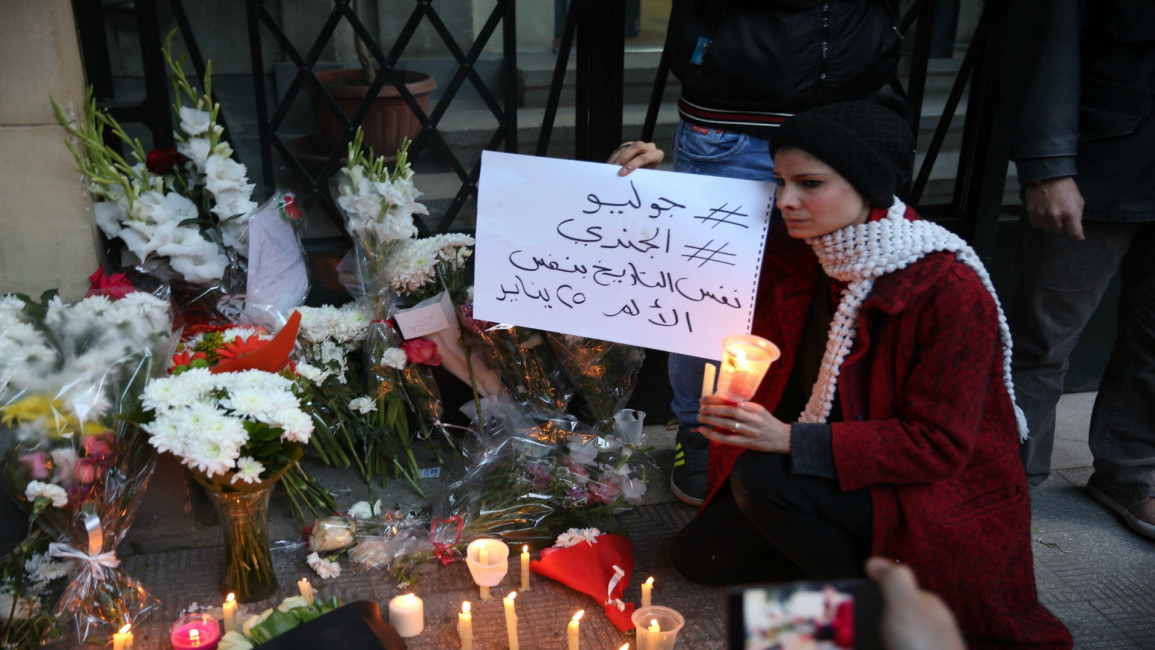
Scholars at risk in the Arab world
The murder of Italian PhD student Giulio Regeni sent shockwaves through the academic community.
Not, though, because academics had any delusions about the nature of the el-Sisi regime in Egypt. Indeed, the letter of protest drafted by his supervisors at the University of Cambridge in the UK pointed out that Regeni initially went missing “in the midst of a security campaign which has resulted in mass arbitrary arrests” on the fifth anniversary of the January 25 overthrow of Mubarak.
It also noted that Amnesty International has documented the cases of hundreds of Egyptian citizens each year who have suffered a similarly fate and it condemned all forced disappearances and deaths in detention in the country.
Nor was it only because of the brutal nature of Regeni’s killing – there were extensive and horrific signs of torture on the young man’s body - or the ludicrous suggestion by Egyptian Interior Minister Magdi Abdel Ghaffar that the student’s death was an “accident” (which followed other claims by the authorities that he may have died in a car crash).
Some part of the revulsion and disgust also derived from the gross violation of the usual protections enjoyed by researchers.
A petition set up by some of the student’s friends described his murder as “an assault on freedoms of thought, speech and movement”. Another friend, Neil Pyper, called it an “attack on academic freedom”.
In the same way the journalists expect to be allowed to carry out their professions unhindered, academics are – at least according to international norms – supposed to be able to carry out scholarly research independent of intervention from outside authorities.
However the reality is often very different.
Regeni knew this. He took the precaution of writing about his research into independent trade unions and labour relations in Egypt for left-wing Italian newspaper Il Manifesto under a pseudonym. Sadly this was not enough to protect him.
The Committee on Academic Freedom of the Middle East Studies Association has detailed that other ways in which academic research is routinely impeded upon in Egypt as part of a wider “climate of repression and intimidation”. These include harassment of scholars, state interference into university governance, the dismissal and expulsion of students and faculty from domestic higher education institutions and denial of entry.
Tunisian Dr Amel Grami experienced the latter when she was detained at the airport, denied a visa and deported last month after criticising the Egyptian security services.
But Egypt is far from the only country in the Middle East where producing research critical of the state can lead to harsh repression.
In Bahrain, the case of Dr Abdulla Al-Singace, an associate professor of engineering at the University of Bahrain, stands out. One of the so-called Bahrain 13, arrested for taking part in unarmed protests against the government in 2011, Al-Singace was tortured in prison, denied appropriate medical treatment and then sentenced to life in prison by a military court for attempting to overthrow the regime.
On 19 January supporters marked his 300th day on hunger strike and called for his immediate release.
Meanwhile, the London-based Council for At-Risk Academics (CARA) - which historically helped scholars who had become refugees including Jewish academics fleeing Nazi persecution in Europe - has in recent years focused much more heavily on the Middle East.
It launched a campaign to assist Iraqi scholars in 2006 after the violence that continued after the US-led invasion saw a marked increase in kidnappings and targeted assassinations, hundreds of academics murdered and many more internally displaced or forced into exile.
More recently, CARA awarded a fellowship to a Syrian academic identified only as ‘N’, who had been a lecturer in theatre studies at the universities of Damascus and Kalamoon but was forced to flee her home in September 2012 amid the ongoing violence which cost the lives of several of her colleagues and students. In 2013, the organisation helped her to secure a post-doctoral placement with waived fees and a bursary after.
For Palestinian scholars and students, violence and restrictions have long been part of day to day life, as they struggle to engage in education under occupation.
In the West Bank, Birzeit University – which was closed down for four and a half years (1998-1992) during the first intifada –most recently endured a raid by Israeli forces an 11 January which the institution called a “belligerent military attack” violating the “sanctity of the university campus”.
Similarly Irish group Academics for Palestine condemned Israel’s 51-day assault on Gaza in summer 2014 as, among other things, an “attack on education”. As well as there being faculty and students among the thousands killed and injured by the bombing, at least three universities, including the Islamic University of Gaza, suffered structural damage.
Within Israel’s own universities, the persecution of scholars who dissent from the Zionist hegemony, such as so-called “new historian” Ilan Pappe – who used state archive documents to reveal the systematic and deliberate nature of the ethnic cleansing of Palestine in 1948 – is notorious.
Knowledge is power and authoritarian states will go to great lengths to censor and repress scholars engaged in work critical of their abuses. That practically everywhere in the Middle East – and indeed beyond – academic research can be a dangerous endeavour only shows how vital it really is.
Hilary Aked is an analyst and researcher whose PhD studies focus on the influence of the Israel lobby in the United Kingdom. Follow her on Twitter: @Hilary_Aked
Opinions expressed in this article remain those of the author and do not necessarily represent those of The New Arab, its editorial board or staff.



